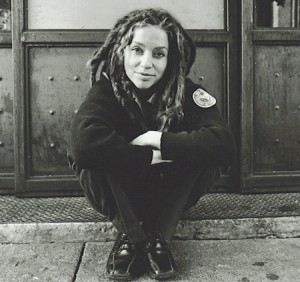 Every music movement or sea change has that one person that influenced the thing in the first place, but never quite got to cash in when the people were finally buying. Grunge had Mudhoney, for example, and the Lilith Fair squad had Ani DiFranco.
Every music movement or sea change has that one person that influenced the thing in the first place, but never quite got to cash in when the people were finally buying. Grunge had Mudhoney, for example, and the Lilith Fair squad had Ani DiFranco.
DiFranco brought forth intelligently written, folky rock performed by women on acoustic guitars through years of relentless touring and a cultish fanbase. But when that kind of thing finally got popular in 1996 and 1997, Lilith acts like Fiona Apple and its founder Sarah McLachlan got the coin and the cover of Entertainment Weekly. Of course, Ani DiFranco is an outspoken lefty, openly bisexual contrarian anti-sellout who probably doesn’t really care that she didn’t get the hit songs she deserved, but still — she deserved them and probably should have been able to ride the wave.
As the Lilith Fair toured the country in the summer of 1997, its acts got a lot of radio airplay, as it was still, embarrassingly to say looking back, a novelty that ”these were women! With guitars! Playing their own songs!” DiFranco’s ”Fire Door,”a live cut from her live album Living in Clip was released to radio by Righteous Babe Records. (The owner and operator of Righteous Babe Records: Ani DiFranco.) It was a solid, representational introduction to new listeners, as it shows off her signature rapid-fire lyrics, guitar skills, and anthemic tendencies. It’s fairly Springsteenian.
”Fire Door” got major airplay in Oregon, Berkeley, Madison, you know, those kinds of places…but that was about it. Meanwhile, McLachlan had two top 20 hits, Jewel had three, and Meredith Brooks went to #1 with the faux-edgy ”Bitch.” But DiFranco, the most electric, progressive, and DIY of all the Lilith acts, the one that truly represented the festival, failed to break through with a radio hit. (Even though her previous studio album, 1996’s Dilate, had sold a surprising half a million copies.) ”Fire Door” did not make it to any national chart.




Comments